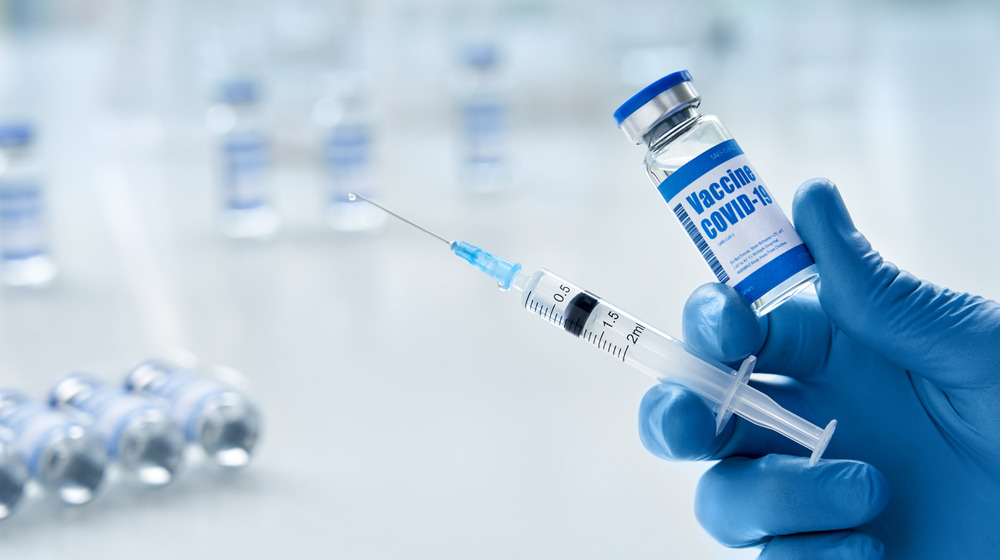The Real Reason Merck Is Halting Vaccine Production
Pharmaceutical giant Merck & Co. released a statement yesterday announcing that it was halting the production of its two COVID-19 vaccine candidates, known as V590 and V591. This was not the news they were hoping to deliver when they began the process of vaccine development. They reported that while both candidates were well tolerated in clinical trials, "The immune responses were inferior to those seen following natural infection and those reported for other SARS-CoV-2/COVID-19 vaccines." They are of course referring to the Pfizer/BioNTech and Moderna vaccines which are being administered throughout the U.S., boasting 94 to 95 percent efficacy against the deadly virus.
Merck had hoped to continue its success as a vaccine maker following its 2019 Ebola vaccine which was approved by the U.S Food and Drug Administration. Merck's two COVID-19 candidates differed from the Pfizer and Moderna vaccines, both in the mechanism of action and number of doses (via NPR). While the Pfizer and Moderna vaccines are both mRNA vaccines and require two doses for full efficacy, Merck's candidates were both single-dose vaccines that worked similarly to the Ebola vaccine. Instead of using mRNA technology, Merck had hoped to create a "replicating viral vector" which could provide longer-lasting immunity by continuously priming the immune system with coronavirus proteins.
Merck will still be working to help fight the COVID-19 pandemic
While hopes of producing COVID-19 vaccines may have come to an end for Merck, their work is far from done. The two ways to combat any outbreak of disease, especially a widespread pandemic, is to develop vaccines to ultimately slow the spread of disease and develop adequate therapeutics to decrease mortality rates and help an overloaded healthcare system. Merck is now focusing its efforts on the latter aspect and will continue its research into two potential SARS-CoV-2 therapeutic candidates. The two candidates, known as MK-7110 and MK-4482 (Molnupiravir) could offer some relief in the management and treatment of moderate to severe cases of COVID-19.
Both therapeutic candidates would be novel additions to the pharmaceutical world with MK-7110 helping to modulate the inflammatory response to SARS-CoV-2 and Molnupiravir being an oral antiviral medication targeting the deadly virus.
While perhaps this is not the way Merck would've hoped to kick off 2021, their commitment to helping manage the growing COVID-19 pandemic still remains. Now aggressively researching and working on therapeutics, we may soon be able to combat COVID-19 from both a preventative and therapeutic standpoint.


